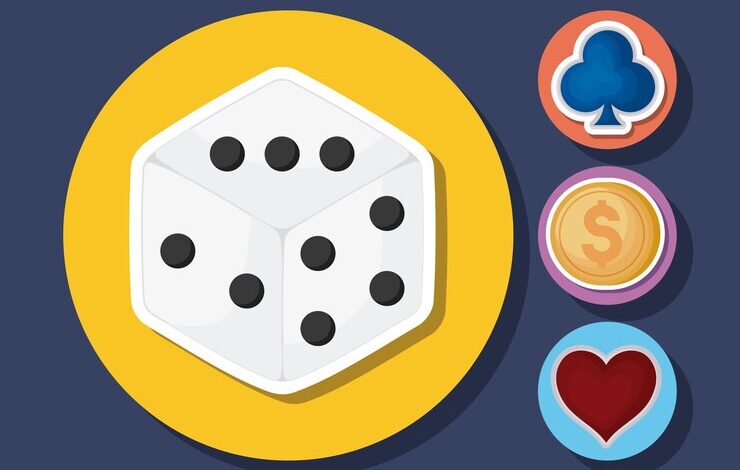Understanding do NPC Dice ace SWADE

The Savage Worlds Adventure Edition (SWADE) is renowned for its fast-paced, cinematic gameplay. But at the heart of its dynamic storytelling lies an often-overlooked mechanic that can elevate your games to new heights—NPC dice. If you’ve ever wondered, “How do NPC dice ace SWADE, and why does it matter?” you’re in the right place. This post will explore how NPC dice work, their importance in gameplay and storytelling, and strategies for using them effectively to enhance your roleplaying sessions.
What Are NPC Dice in SWADE?
do NPC dice ace swade or Non-Player Character, dice are the dice rolls used to determine the actions, successes, and failures of non-player characters in the SWADE system. These are critical to how NPCs interact with the environment and the player characters (PCs) in any given scenario. They follow the same mechanics as PCs, rolling both a trait die (based on their skill level) and a Wild Die (a d6), picking the higher result.
The unique feature of SWADE is the “Acing” mechanic, where dice rolls that reach their maximum value (e.g., rolling a 6 on a d6) allow the player or game master (GM) to roll again and add the results together. This applies equally to NPC dice, creating exciting narrative moments where NPC actions can unexpectedly turn the tide of an encounter.
Understanding how NPC dice behave in SWADE can open up creative avenues to engage players and deepen the story. Whether it’s a rogue pickpocket, a menacing dragon, or a cunning political adversary, NPC dice rolls determine the unpredictability and challenge these characters bring to the game.
The Role of NPC Dice in SWADE’s Game Mechanics
NPC dice are more than just a simple mechanic to determine success or failure. They are central to SWADE’s goal of fast and furious encounters that keep players on their toes. Here are a few key ways NPC dice enhance gameplay and storytelling:
1. Balancing Tension in Encounters
The randomness of dice rolls means even the simplest NPC can momentarily shine—or fail spectacularly. This unpredictability ensures players remain engaged and invested in every interaction, from combat to social challenges.
2. Dynamic Storytelling
Instead of scripting every NPC outcome in advance, NPC dice allow events to unfold organically. A guard rolling a critical failure while trying to sound an alarm might lead to an unexpected twist, forcing players to think on their feet.
3. Player Immersion
By assigning the same dice mechanics to NPCs that players use, SWADE creates a shared system of fairness and immersion. Players know that NPC actions are subject to the same rules and probabilities, making successes and failures feel more authentic.
Tips and Strategies for Using NPC Dice Effectively in SWADE
Now that you understand their role, let’s explore how to wield NPC dice effectively as a GM. Whether you’re new to running SWADE or a seasoned pro, these tips can help you get the most out of your NPC rolls:
1. Calibrate the Difficulty Level
Not every NPC needs to be a formidable challenge. Adjust their stats and dice rolls to create a balanced mix of challenges—from easy distractions to boss-level threats. Remember, it’s not just about winning; it’s about creating memorable moments.
2. Lean Into the Acing Mechanic
The acing mechanic is where NPC dice truly shine. Highlight these moments to build tension and drama. For example, when a bandit aces their shot against the party leader, it creates a memorable obstacle players will rally to overcome.
3. Narrate Successes and Failures Creatively
Use NPC dice results as storytelling prompts. A natural 1 on both the trait die and Wild Die (a Critical Failure) might lead to humorous or dramatic consequences, like an enemy accidentally revealing a secret or tripping during a pivotal moment.
4. Use NPC Dice to Manage Pacing
NPC dice rolls can influence the rhythm of the game. A string of successful rolls can intensify action sequences, while failures can provide breathing room for player planning or character moments.
5. Tailor NPCs to the Story
Not all NPCs need to roll dice for every action. Save the detailed rolls for important moments, and rely on roleplaying or narrative resolution for minor actions. This keeps the game flowing smoothly.
Examples of NPC Dice in Action
To showcase how NPC dice can enhance gameplay, let’s look at a few examples:
Combat Scenarios
A group of goblin raiders ambushes the party. One goblin scores a critical success with their acing dice, dealing unexpected damage to the party’s tank. This turns what seemed like an easy encounter into a fight for survival, raising the stakes and creating a memorable battle.
Social Encounters
The party attempts to persuade a skeptical noble to join their cause. When rolling for the noble’s resistance, the GM scores a critical failure. This might translate into the noble accidentally revealing compromising information, giving the players an advantage.
Exploration Challenges
While navigating a dangerous jungle, an NPC guide uses Survival skills to find a safe route. The dice result in a success, but only after acing. This might represent the guide leading the party through a narrow escape, reinforcing their value and character depth.
SEO Section: The Evolution of NPC Dice in Roleplaying Games

do NPC dice ace swade mechanics have evolved significantly since the inception of tabletop roleplaying games (TTRPGs). Early systems often assigned static outcomes to NPC actions, leaving little room for dynamic storytelling. Modern games like SWADE have embraced dice-based mechanics that give NPCs agency and depth.
Key trends have emerged over time:
- Standardization in Dice Mechanics: Systems like Dungeons & Dragons used d20s to create standardized outcomes for both players and NPCs—though often without the additional Wild Die feature seen in SWADE.
- Rise of Acing Dice: Dice mechanics similar to SWADE’s acing appeared in other systems like Deadlands and Savage Worlds, adding an extra layer of excitement.
- Focus on Player-Driven Stories: NPC dice mechanics increasingly support collaborative storytelling, creating unexpected plot twists that players and GMs must adapt to.
Understanding these trends can deepen your appreciation for SWADE and provide context for how its mechanics fit into the broader TTRPG landscape.
Why NPC Dice Matter in SWADE
NPC dice are pivotal to the SWADE experience, adding layers of unpredictability, drama, and immersion. By leveraging these mechanics effectively, you can create encounters that challenge, surprise, and delight your players—all while keeping the pace fast and the story engaging.
Are you ready to enhance your SWADE sessions with creative NPC dice rolls? Share your favorite tips and strategies in the comments below, or tell us about a time when NPC dice completely changed the course of your campaign!



